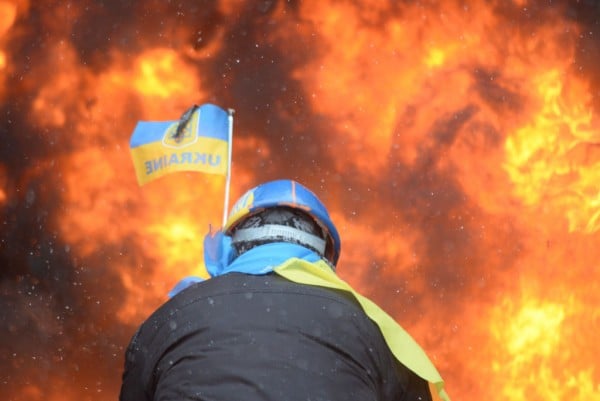
The U.S. cannot address today’s Russian military threat against Ukraine without addressing what military resources we have to back our diplomacy and to deter hostile moves backed by force. Currently, no U.S. discourse guides policy makers toward an answer. The public expects a strong defense when we are afraid or when we are outraged at foreign wrongdoing but otherwise ignores the question of military capabilities. We raise issues that involve the use of force in a random drift from crisis to crisis.
Some of our impulses are to oppose military action, as in refusing to be the “world’s policeman.” Some are an objection to any use of force except in direct response to a military attack on the United States and, sometimes, not even then. Some impulses are pro-active. We agree that a nation should defend itself and we want a large enough force to find and fight terrorists. There are those who wish we could forcefully depose tyrants or regimes that abuse their own people. We leave force on the table to pressure such bad guys not to acquire weapons of mass destruction.
The Pentagon maintains other missions. We aim to control the seas and to guarantee the flow of commerce and communication, which underpin America’s well being and security. We maintain capacities and liaisons to support alliances, particularly NATO, NORAD, U.S.-Japan, ANZUS, and our pacts with South Korea and Taiwan. We hold fast to these missions that are legacies of decades past.
This mix of impulse and legacy creates confusion. Regarding Ukraine, do we oppose Putin’s pressure on Ukraine in the name of democracy, of treaty obligations, or of our geopolitical interests? If we fail to oppose him militarily, are we weak, or even hypocritical, in our concern for freedom? We blustered and backed off regarding Syria and its WMDs and appeared at once to be bullying and cowardly.
We must choose our true priorities from the various defense needs that arise. National interest is the proper guide for this choice. America’s fundamental national interest is in freedom. The nation is defined by Liberalism’s tenets and a commitment to the principle that government serves the people. Protection of underlying conditions to Americans’ freedom is our primary defense mission. Protection of other peoples that enjoy substantial freedoms is nearly as important.
The most comprehensive levels of personal freedom prevail in the societies of our allies: our NATO partners, Japan, Australia, and New Zealand. However, the alliances we share with these countries have, for some time, lacked a clear mission. Protection of the conditions of this high level of freedom should underwrite a new arrangement, bonding these allies into a security community.
Beyond such protection, rationales for military capacities must be weighed against the instability that military conflict introduces into the world. We accept the idea that war is an exception from moral norms, only justified by immoral transgressions. We should encourage the perception that war is obsolete as an instrument of policy. Our current military dominance still deters its use, and we should maintain sophisticated forces to punish unambiguous aggression as we did when Saddam Hussein invaded Kuwait.
These concepts can generate a discourse that maintains congruence among the values we espouse, the policies we declare, and our defense capabilities. Our use of technology in drone operations and the monitoring of cyberspace, and the strategies we develop vis-a-vis China, to name three issues, will have a conceptual framework to follow.
As for Putin’s threats against Ukraine, we object to the use of force for the pursuit of naked interest, and to its use to repress others’ freedom. Putin did this before in Georgia and feels entitled by the political uncertainty in the former Soviet republics. He is also abetted by these countries’ physical remoteness from the West. But we must reverse any impression, in Eliot Cohen‘s words, that Putin “can get away with it.” Certainly, any further Russian military actions should trigger isolation of the Putin regime. But that would not undo the use of force and may not deter future military aggression. We should assert our right to support Ukraine militarily under the Budapest Declaration. The question returns to what capacity we have to give effective support.
Whatever responses we cobble together today, the outcome of this confrontation should guide the U.S. and the West in structuring their defense capacities going forward. Perhaps Putin will see reason and allow us to avoid a very large build up. If not, the prospect of new Western forces oriented against his aggressions would incur a cost that actually matters to him.
This response fits within a logical focus on America’s national interest. Beyond the diplomacy of isolation of Putin, it clarifies America’s stance for freedom and its protection. It enjoins all rulers to seek their legitimacy in the consent of the governed. If it does not reform him, this will punish Putin most.